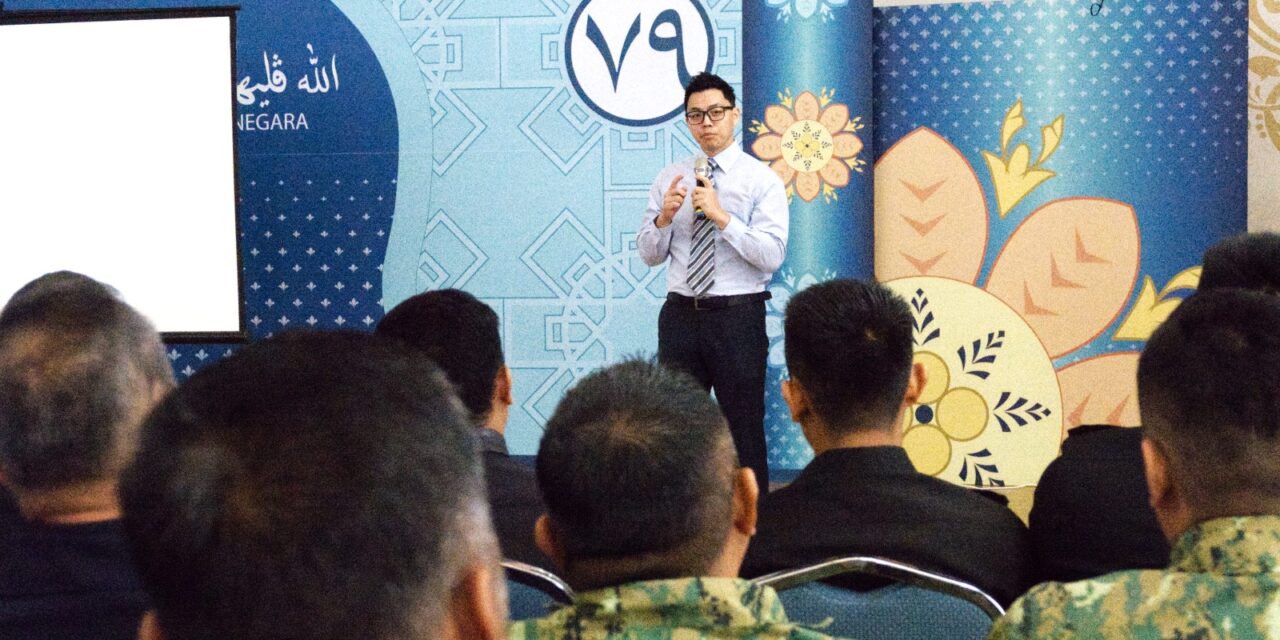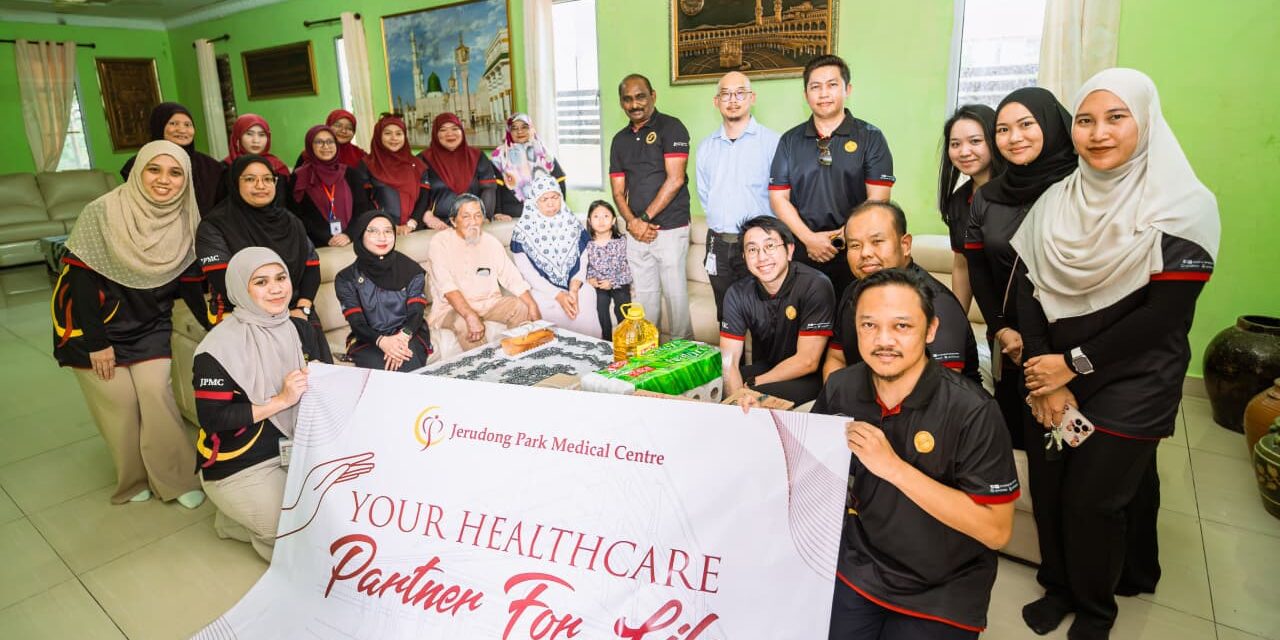
The Jerudong Park Medical Centre (JPMC) conducted an International Infection Prevention Week Event at the Empire & Country Club for two consecutive days, 19th October 2019 and 20th October 2019 to commemorate International Infection Prevention Week. The first event on the evening of Saturday 19th October 2019 started off with the recital of Surah Al-Fatihah followed by opening remarks by Dr Meera Sahib Kabeer, Medical Director and Chairman of Infection Control Committee, Jerudong Park Medical Centre.
Dr. Meera Sahib Kabeer in his capacity as the Chairperson of IIPW welcomed all the invited attendees from the health industry who also expressed his gratitude. Dr. Kabeer said, “The IIPW conference offers a unique forum for participants to exchange knowledge and experience in the prevention of healthcare-associated infections and control of antimicrobial resistance around the world. Recent advances in Infection Prevention and Control Programs are widely recognized as being both clinically effective and cost-effective. Good infection control practices do save both lives and money.”

Dr Meera Sahib Kabeer
Yang Berhormat Dato Seri Setia Dr Hj Md Isham Bin Hj Jaafar, Minister of Health in his capacity as the Chairman and Executive Director of Jerudong Park Medical Centre (JPMC) was the Guest of Honour for the event and officiated the launching of International Infection Prevention Week Conference as well as the Handbook of Antibiotic Guidelines (2nd Edition).
During his opening remarks Yang Berhormat Dato Seri Setia Dr. Hj Md Isham stated, “The cornerstone of good healthcare practice lies in the approach to ‘do no harm’. This is why patient safety and infection prevention and control are the fundamental feature of our health service. This event therefore is an excellent opportunity to reflect on progress, consider challenges and plan together how we can deliver safe, effective care where good quality patient outcomes are our primary focus.”

GOH Dr Zulaidi
Yang Berhormat Dato Seri Setia Dr. Hj Md Isham stated, “Health care-associated infections (HAIs) are one of the most common adverse events in care delivery and a major public health problem with an impact on morbidity, mortality and quality of life. At any one time, up to 7% of patients will acquire at least one HAI, and deaths from HAI occurs in about 10% of affected patients.”
Yang Berhormat Dato Seri Setia Dr. Hj Md Isham also added “HAIs not only cause prolonged hospital stay, long-term disability and increases the likelihood of resistance of microorganisms to antimicrobials; it incurs a massive additional financial burden for patients and their families, as well as leads to excess deaths.” The Honourable Minister, in his address, outlined three principles for consideration including the use of simple measures such as appropriate hand hygiene, use of Personal Protective Equipment’s, standard and transmission-based precautions in tackling Hospital Acquired infections; Importance of environmental hygiene to protect patients, relatives, and healthcare personnel and having adequate facilities required for Infection Prevention Control.
Yang Berhormat Dato Seri Setia Dr. Hj Md Isham further added that Infection Prevention Control (IPC) should also be seen within the broader context of antimicrobial resistance. “Unfortunately, antibiotics have been used so extensively that many are becoming less effective. Bacteria are increasingly resistant to existing antibiotics, and while new drugs have been developed, the pace of discovery has not kept up with the pace of bacterial resistance.”

Book Launching Ceremony
The Honourable Minister of Health further emphasised that improving the use of antibiotics is important patient safety and public health issue as well as a national priority. “The recently established Brunei Darussalam Antimicrobial Resistance (AMR) Committee recommends Antibiotic Stewardship Programmes as one tool that health facilities can use that can optimize the treatment of infections and reduce adverse events associated with antibiotic use”. With the launching of the Handbook on Antibiotic Guidelines (2nd Edition) on the evening, the Honourable Minister in his concluding remarks stated that this can help clinicians improve the quality of patient care and improve patient safety through increased infection cure rates, reduced treatment failures, and increased frequency of correct prescribing for therapy and prophylaxis.
The event was followed with a presentation, “Infection Prevention Culture” by Dr. Ling Moi Lin’s who is expertise from Singapore General Hospital in healthcare quality, is recognised internationally and has been chairman of the Asia Pacific Society of Infection Control (APSIC) since 2002.
Dr. Daniel Chan, from Farrer Park Hospital, presented the next topic, “Pneumonia or Pneumonitis? – Identifying immune-related adverse events from immune-oncology therapy.
On the 20th October, IIPW event commenced with recital of Surah Al-Fatihah and was later followed by Dr. Meera Sahib Kabeer, Medical Director of JPMC in his capacity as the Chairperson of IIPW welcomed the attendees for the second event.
Dr. Haji Zulaidi Bin Haji Abd Latif, Deputy Permanent Secretary (Professional), Ministry of Health was the Guest of Honour for the second day of IIPW and in his opening remarks, He emphasised “Modern medical technology and knowledge save millions of lives each year and safeguard us against many of the infectious diseases that afflicted our forebears. But the battle against infectious microbes will never end, and infection control will always be at the Centre of all healthcare services.
It is the primary duty of every health care facilities in Brunei to establish a blueprint for safe practice that minimises the risk of infection, ensure the provision of adequate resources, appropriate documentation, staff education, appropriate surveillance and the promotion of prudent approaches to treatments.”
Dr. Haji Zulaidi added,” While emerging and re-emerging pathogens present a real threat, it’s possible to meet this challenge. The new Infection Control Standards, Brunei National Anti-microbial resistance program, antibiotic monitoring, audit initiatives and comprehensive responses to instances of non-compliances constitute an effective mix to fight this challenge.”
Dr. Ling Moi Lin in her talk highlighted the need for, “Risk Assessment in Infection Prevention”.

Token of Appreciation
Rozi Ismail, Clinical Charge Nurse of JPMC along with Dr. Hajah Rosmonaliza Binti Haji Awang, Head of Infectious Disease Department, Ministry of Health and Dr. Alice Ali, Head of Occupational Health Division of Ministry of Health also shed some light on infection prevention and control measures.
The two-day event was included with the interaction between the speakers and the audience.
The event was also in collaboration with two local healthcare entities, Gleneagles Jerudong Park Medical Centre (GJPMC), Pantai Jerudong Specialist Centre (PJSC) and was supported by MSD Singapore.


